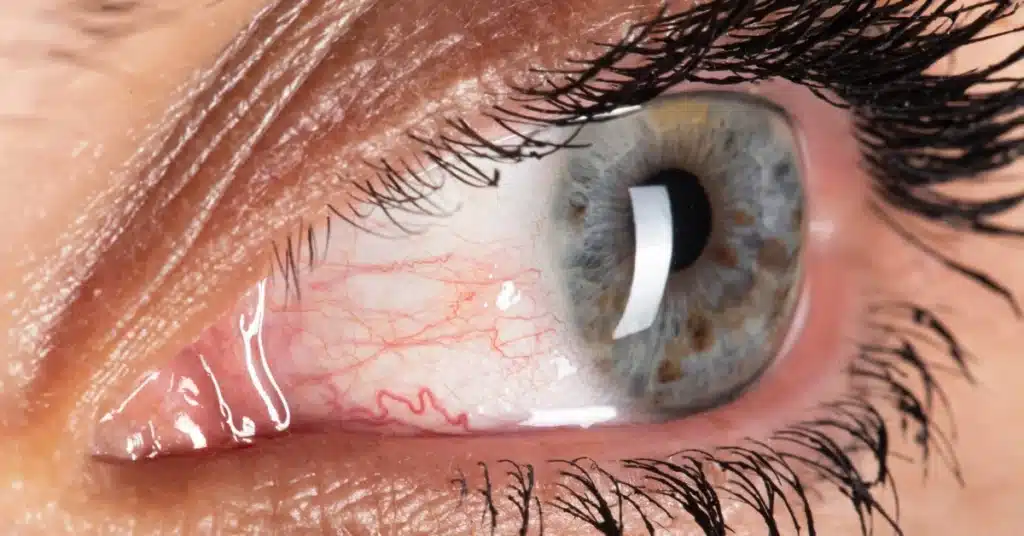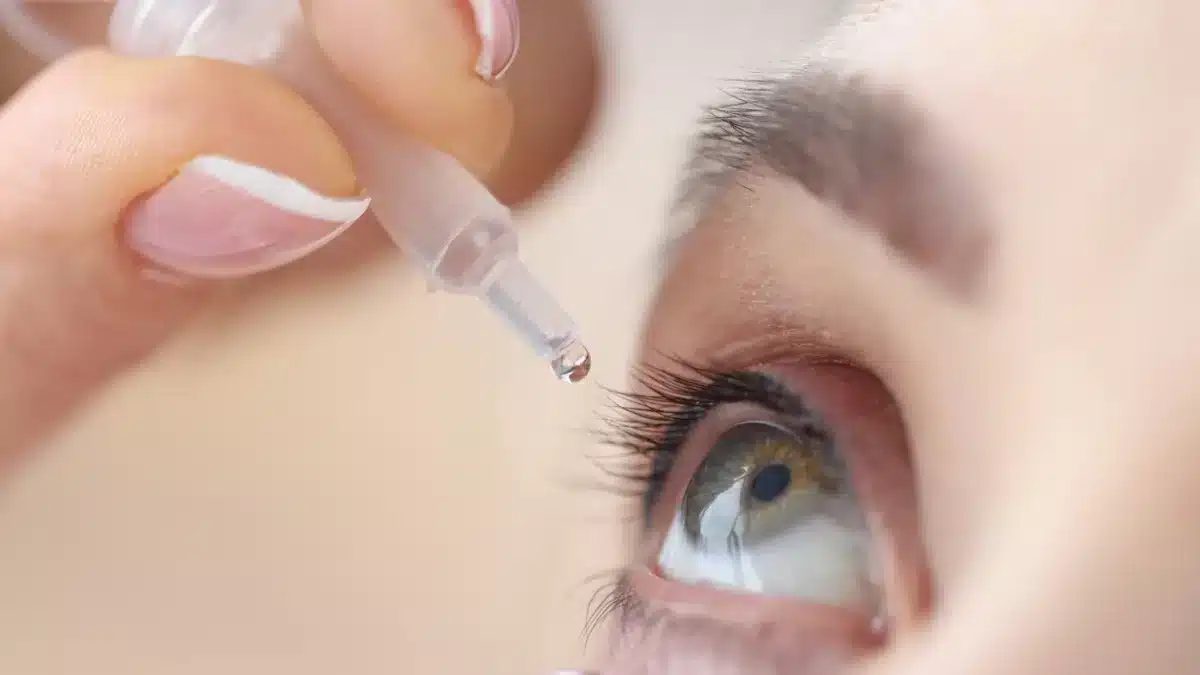When choosing eye drops for Red Eyes, it’s important to remember the root cause of the problem.
Choosing safe, effective eye drops without chemicals or preservatives is highly prioritized.
Over-the-counter eye drops are a common remedy for Red Eyes caused by allergies, dryness, or infections.
Choosing the best eye drops for the Red Eye is difficult; therefore, we will discuss the various eye drops for the Red Eye in this article.
Types of eye drops for Red Eyes
Different eye drops are made to treat the various causes of Red Eyes.
Artificial tears, antihistamines, vasoconstrictors, and prescription drops are all used to maintain ocular health.
Picking the right type of medicine depends on the cause, ensuring the efficiency of the eye drop.
Now, let’s look at these various eye drops for Red Eyes.
Artificial tears: People with Red Eyes often use artificial tears due to dryness. They work by lubricating the eye’s surface, which eases the pain that comes with Dry Eyes. If you plan to use them a lot, look for ones that don’t have any preservatives.
Antihistamines: Antihistamine eye drops can help greatly if allergies cause red eyes. These drops work by blocking histamines, chemicals that cause allergic responses.
Vasoconstrictors: Vasoconstrictor eye drops are meant to make the eyes less red by narrowing their blood vessels. They work quickly to relieve pain, but long-term use can cause swelling to return, so they should only be used briefly.
Prescription eye drops: Sometimes, having red eyes could be a sign of a deeper health problem. Talk to an eye doctor who can recommend specific eye drops to help with the problem.
Eye drops for Red Eyes
 Source: angeljana
Source: angeljanaTo treat Red Eyes effectively, you need to find out what the root cause of your problem is.
Factors like dust, smog, or allergens in the air can cause mild redness.
Tetrahydrozoline (Visine) and Naphazoline, which are Over-The-Counter (OTC) eye drops, can help as decongestants that reduce nerve swelling and redness.
Before taking decongestant medicines, you should talk to a doctor to make sure they are safe and will help solve your eye problem.
It’s important to remember that these drops for redness only ease the symptoms and don’t treat the underlying cause like Glaucoma, Dry Eyes, or Keratitis.
If you have symptoms like redness, itching, blurred vision, eye pain, or sensitivity to light, you should consult a doctor.
After figuring out the problem, an eye doctor will prescribe the right medicine.
Depending on the situation, this could include Glaucoma eye drops, antibiotic eye drops, or some other eye drops.
What to keep in mind while buying eye drops for Red Eyes
Over-the-counter eye drops for Red Eyes can have side effects like any other medication.
These eye drops may help with Red Eyes for a short time, but the problem may come back after the effects of medicine wear off.
Repeated use may worsen redness, leading to a cycle of constant eye drop use called “rebound redness.”
This could cause serious damage to the eye due to nerve swelling that happens over and over again.
Another possible side effect is lower medicine efficiency. You can use fake tears instead of decongestant eye drops to avoid these side effects.
Newer medications like Brimonidine (Lumify) may lessen rebound redness, but consulting your doctor for the proper treatment is necessary.
Conclusion
In conclusion, finding the best eye drops for Red Eyes involves understanding the root cause and selecting effective eye drops without chemicals.
Artificial tears for dryness, antihistamines for allergies, and vasoconstrictors for immediate relief depend on the cause of your Red Eyes.
Over-the-counter options like Tetrahydrozoline (Visine) and Naphazoline temporarily relieve nerve swelling and redness.
However, it’s important to consult a doctor for safety and efficacy while using these medicines.
Notably, these drops only alleviate symptoms and don’t address underlying issues like Glaucoma or Dry Eyes.
For better and long-lasting eye health, a doctor’s guidance is essential.
Finding the best Red Eye drops is easier with artificial tears or newer medications like Brimonidine (Lumify), with fewer rebound redness risks.
Frequently Asked Questions
What are the best over-the-counter eye drops for Red Eyes?
The choice of eye drops depends on the underlying cause. Artificial tears work for redness caused by Dry Eyes, antihistamines for allergies, and vasoconstrictors for quick relief. Tetrahydrozoline (Visine) and Naphazoline are common decongestants, but consulting a doctor is important for ensuring safety.
Can artificial tears be used frequently for Red Eyes?
Yes, artificial tears can be used frequently, especially for Red Eyes caused by Dry Eyes. Look for preservative-free options if you use them regularly to avoid potential side effects.
Do vasoconstrictor eye drops have long-term side effects?
Prolonged use of vasoconstrictor eye drops may lead to rebound redness. These drops are recommended for short-term relief, and their extended use can result in swelling and worsen the redness.
How do antihistamine eye drops work for Red Eyes?
Antihistamine eye drops block histamines, chemicals responsible for allergic reactions. They are effective for Red Eyes caused by allergies and relieve symptoms like itching and redness.
Are there alternatives to decongestant eye drops to avoid rebound redness?
New medications like Brimonidine (Lumify) might lower the risk of rebound redness. However, consulting a doctor is essential for the right treatment plan.
When referencing outside resources, GoodrxMedicine always provides full citations. To learn more about the measures we use to maintain the quality of our content, please review our Content Information Policy.











